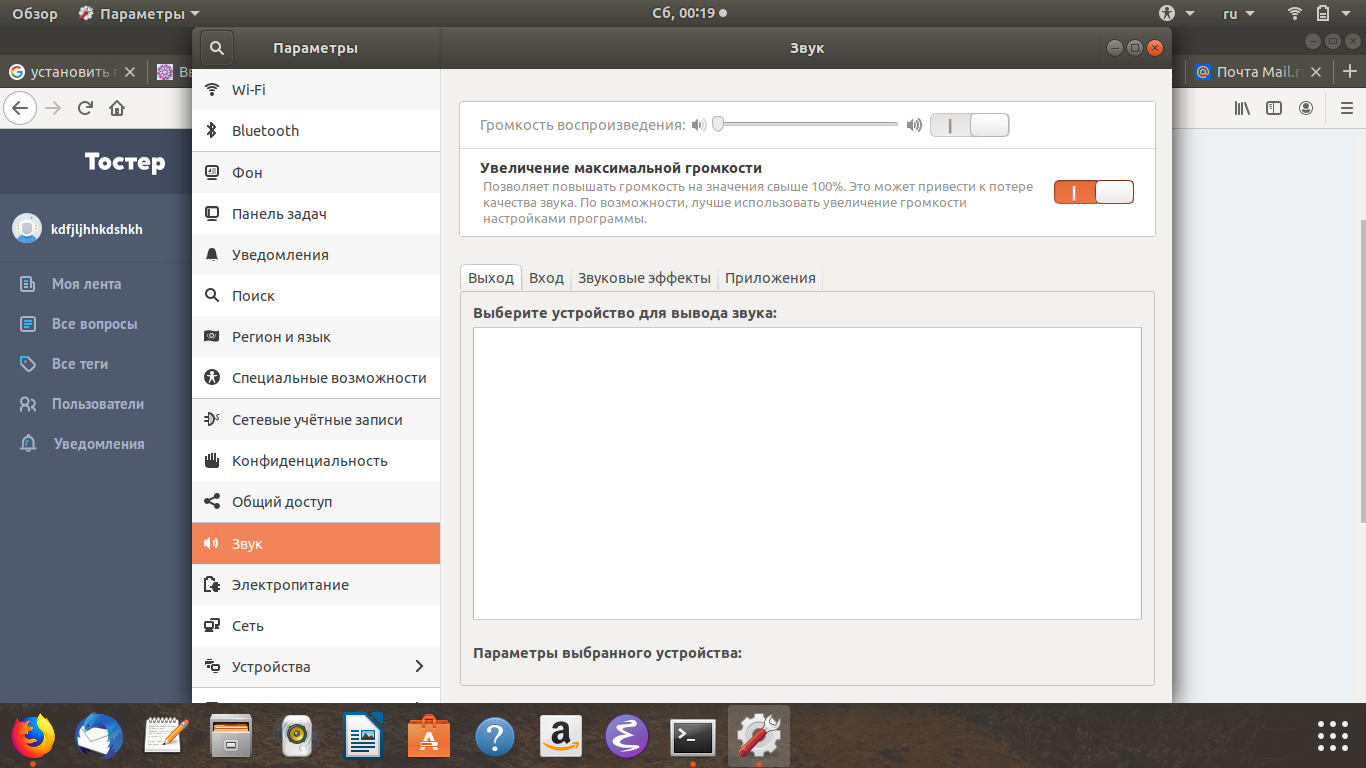Answer the question
In order to leave comments, you need to log in
There is no sound on ubuntu 18.04, in the process of searching for a problem, the numbers on the side somehow turned off?
the slider itself does not work on the sound
Answer the question
In order to leave comments, you need to log in
I have not used ubuntu for a long time, but there is also something like a control center there. I have mageia, there is a mageia control center - I click "equipment" - sound settings. And there is a "troubleshooting" button. No, it does not repair anything itself, but there are (I think it will be the same in many distros) valuable tips on what to look for:
Below are a few simple tips to help debug audio issues, but for accurate and up-to-date tips and tricks see:
https://wiki.mageia.org/en/Support:DebuggingSoundP...
- General recommendation: Enable PulseAudio. If you choose not to use PulseAudio, we strongly advise you to enable it. For the vast majority of use cases, PulseAudio is the recommended and best supported.
- "kmix" (KDE), "gnome-control-center sound" (GNOME) and "pavucontrol" (generic) will launch graphical applications to let you view your sound devices and adjust volume levels
- "ps aux | grep pulseaudio" check whether PulseAudio is running on the system.
- "pactlstat"
- "pactl list sink-inputs" will show you which programs are currently playing sound through PulseAudio.
- "systemctl status osspd.service" will tell you the current status of the OSS daemon. This is used to enable sound from legacy applications that use the OSS sound API. You must install the "ossp" package if you need this functionality.
- "pacmd ls" will give you a lot of debug information about the current state of your audio device.
- "lspcidrake -v | grep -i audio" will show you which low level driver your card is using by default.
- "/usr/sbin/lsmod | grep snd" will allow you to check which related kernel modules (drivers) for sound are being loaded.
- "alsamixer -c 0" will give you pseudo-graphical control of the ALSA mixer for the first sound card
- "/usr/sbin/fuser -v /dev/snd/pcm* /dev/dsp" will show which programs are currently using the sound card directly (usually should show only regarding PulseAudio)
Didn't find what you were looking for?
Ask your questionAsk a Question
731 491 924 answers to any question